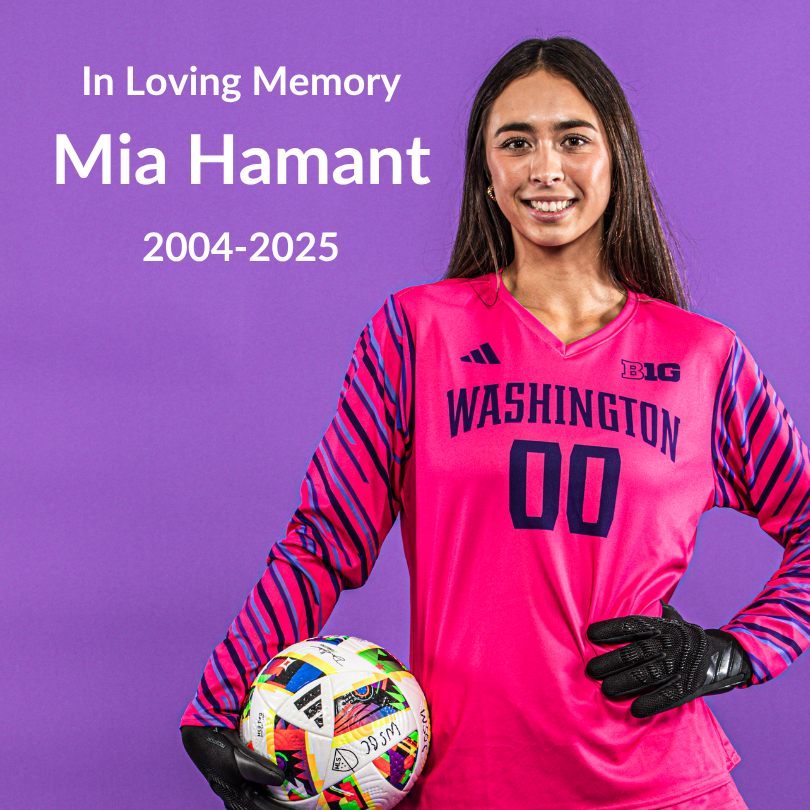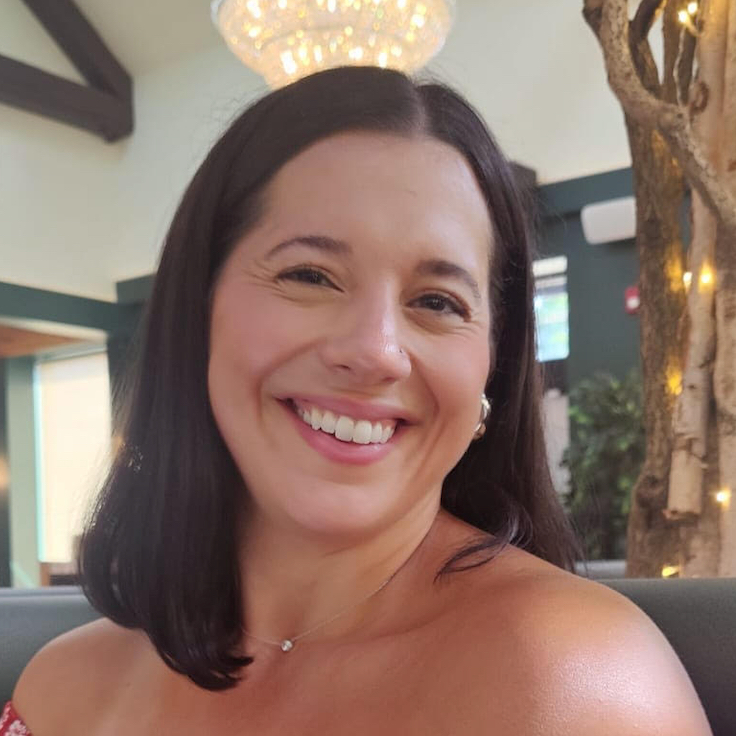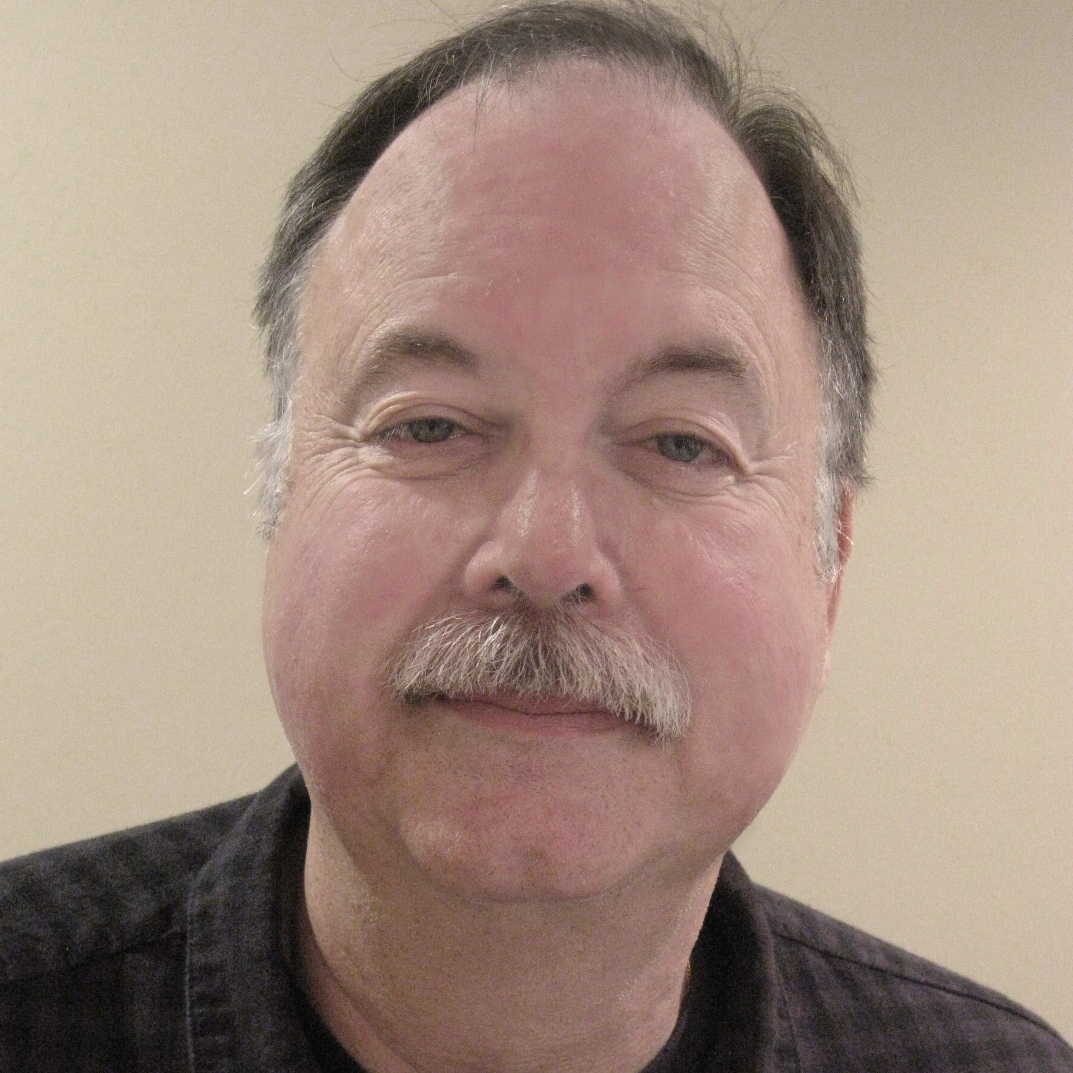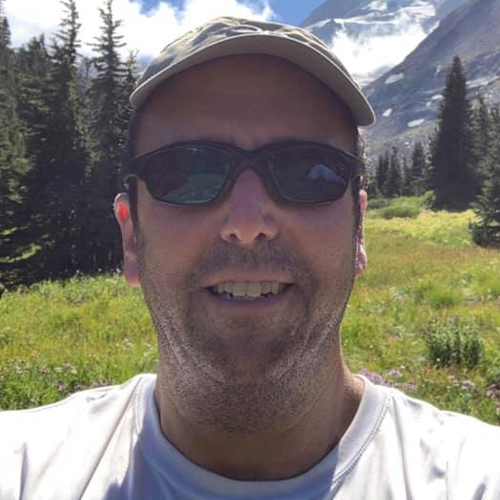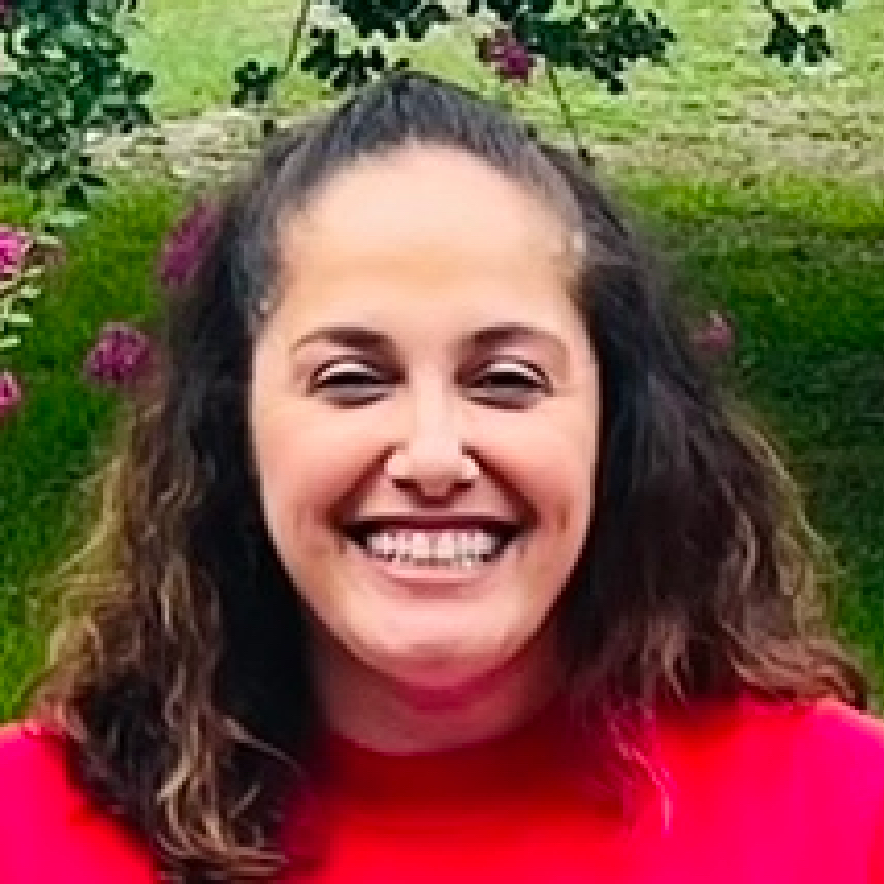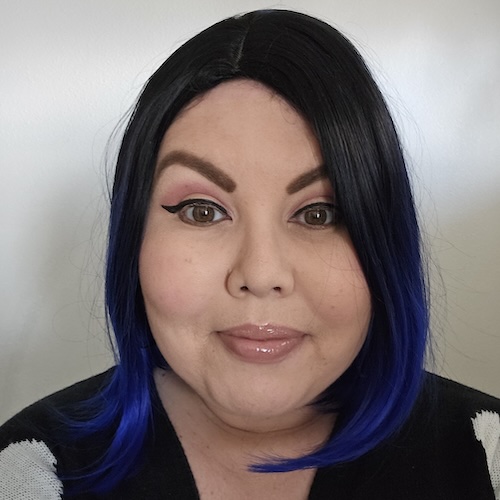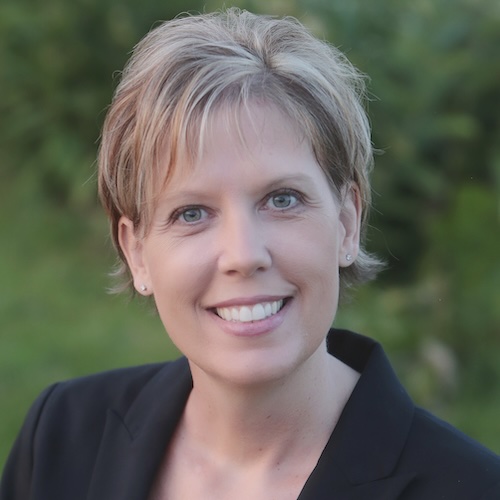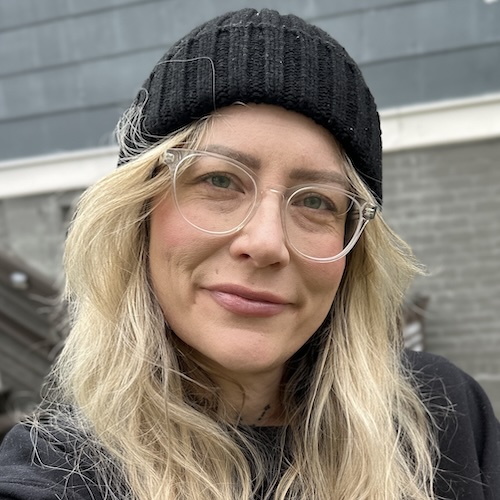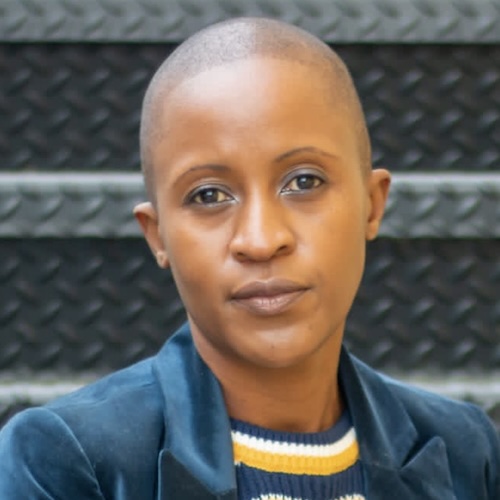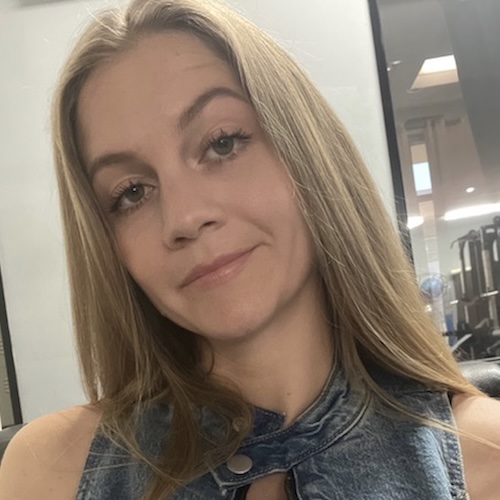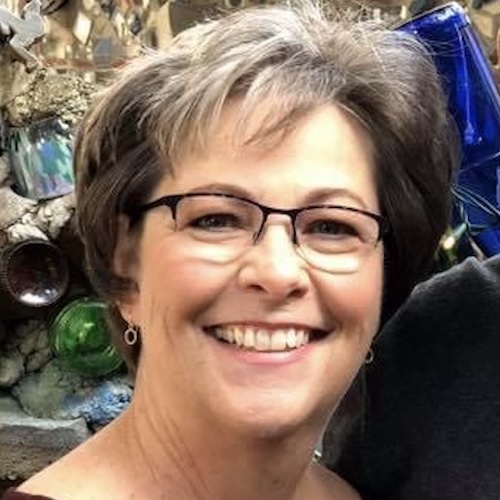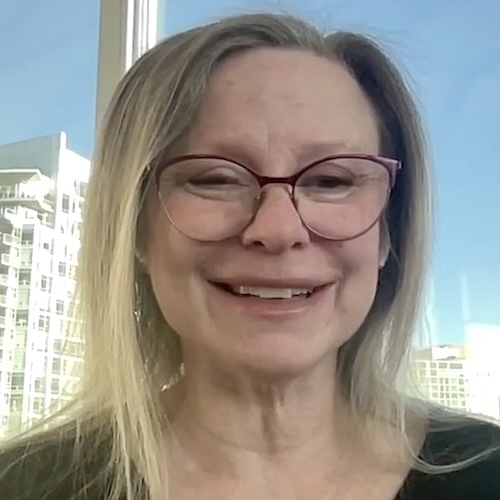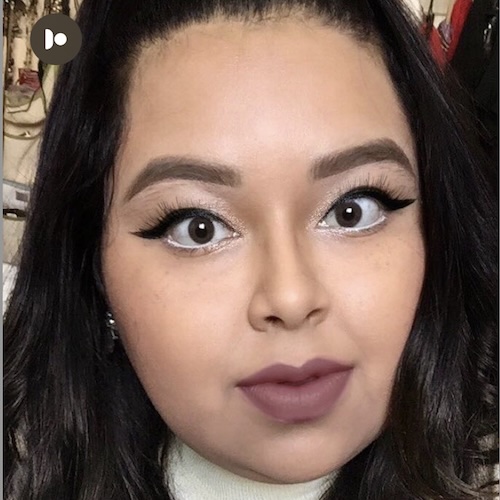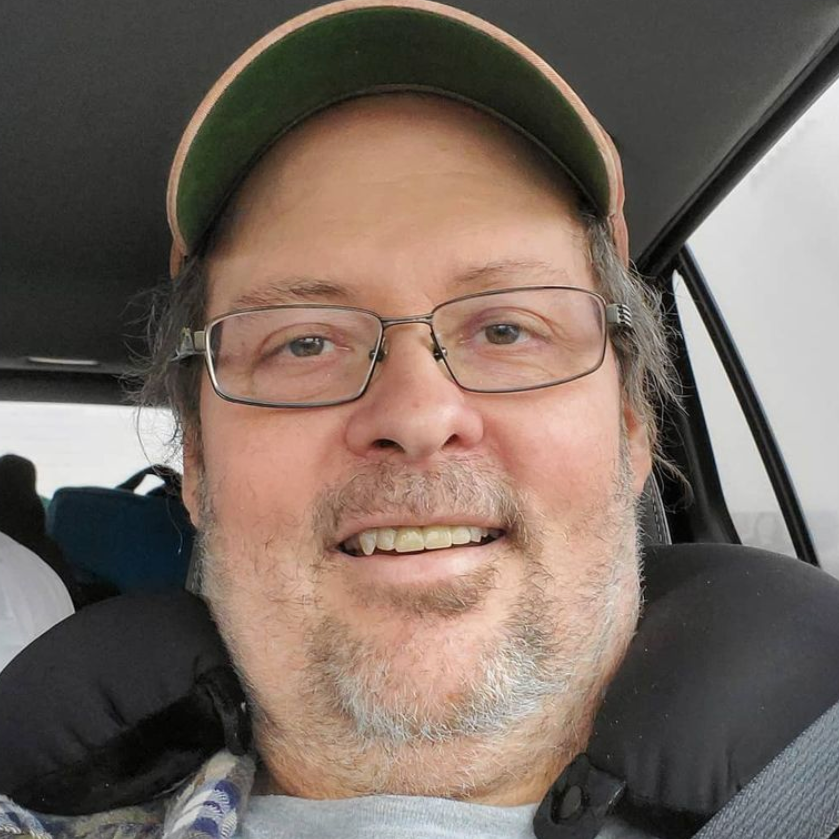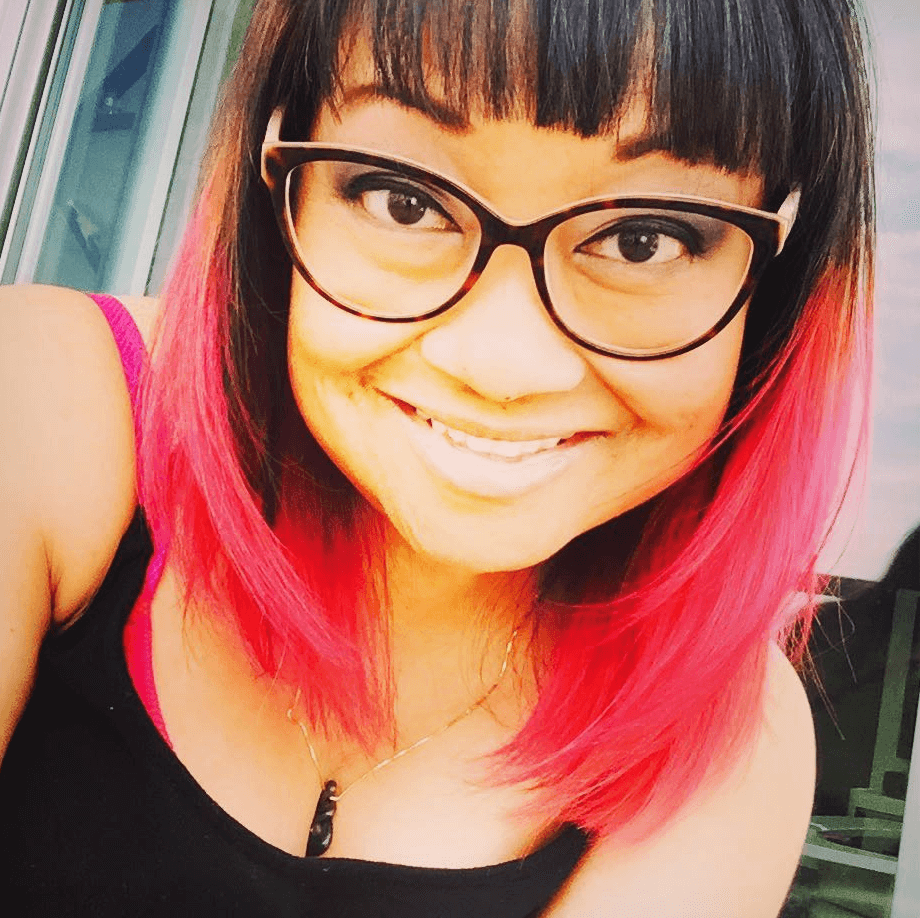The Importance of Cancer Screening | Pastor Steven Hargrove
Interviewed by: Nikki Murphy
Edited by: Chris Sanchez
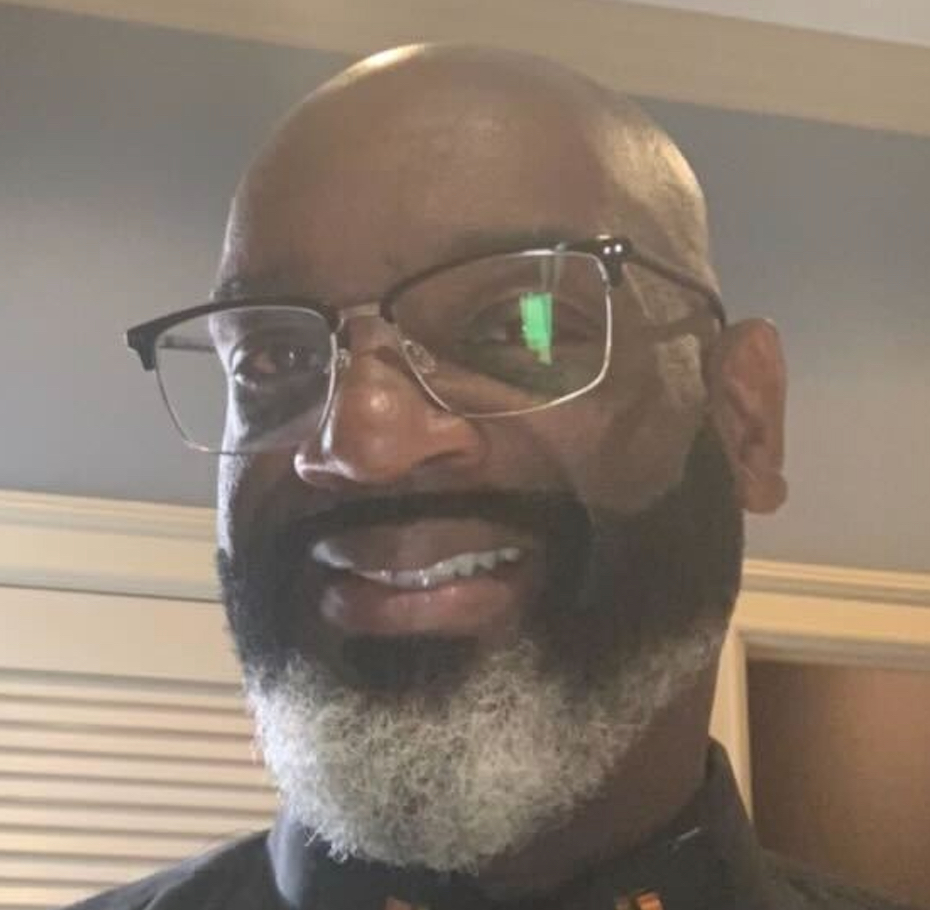
Pastor Steven Hargrove shares the profound impact cancer has had on his family and community, and underscores the importance of cancer screening, as well as the role an institution such as the church can and should play when it comes to healthcare.
Steven grew up in North Carolina and serves as a pastor at White Rock Missionary Baptist Church. Steven has not experienced cancer himself, but has witnessed the disease ravage his family. His mother died of breast cancer, and several relatives have battled other forms of cancer, including his niece Marisha, who lived 7 years with stage 4 renal cell carcinoma after initially being given 6 months to live.
Steven emphasizes the importance of having adequate healthcare. Marisha’s struggle to afford her monthly medication taught him the necessity of advocating for healthcare coverage. Medicaid eventually covered her medication, highlighting the need for awareness about available healthcare options.
In his church, Steven promotes health awareness, particularly during Breast Cancer Awareness Month. His personal experiences drive his commitment to encouraging cancer screening and preventive measures. He also advocates for hospice care, challenging misconceptions that it solely foreshadows imminent death.
Steven leverages his pastoral role to offer advice and support to his congregation, emphasizing the necessity of spiritual faith combined with proactive healthcare. He encourages participation in clinical trials, sharing that such trials extended Marisha’s life significantly. He believes churches should provide a holistic approach to wellness, integrating health education with spiritual guidance.
Steven’s story underlines the importance of community, faith, and resilience in confronting life’s challenges, advocating for informed decision-making and mutual support within families and communities.



Thank you to Abbvie, Genmab, and Karyopharm for their support of our patient education program! The Patient Story retains full editorial control over all content.
This interview has been edited for clarity and length. This is not medical advice. Please consult with your healthcare provider for treatment decisions.
… I believe that in this life, we just have to learn that we’re going to face some trials.
But we don’t have to face them alone.
Introduction
I am Steven, and I am from Oxford, NC, originally by way of the Bullock community. I currently live in Henderson, North Carolina.
I’m the pastor of the White Rock Missionary Baptist Church located in Greenville County. I took my undergrad and master’s at North Carolina Central University.
I’m a professor here at NC State University teaching in the social work program. I taught at Vance-Granville Community College prior to teaching at NC State U. I also am a 20 year vet.
I’m married to the lovely Leslie, and we have three adult children and seven grandchildren. And a dog we call Roger.
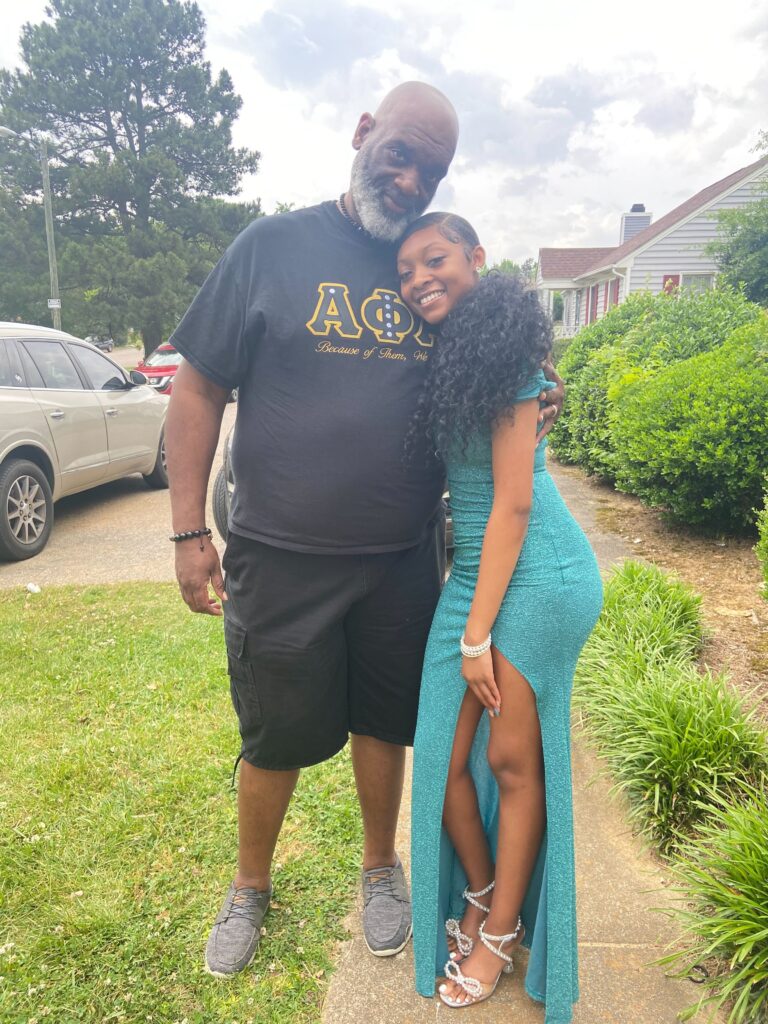
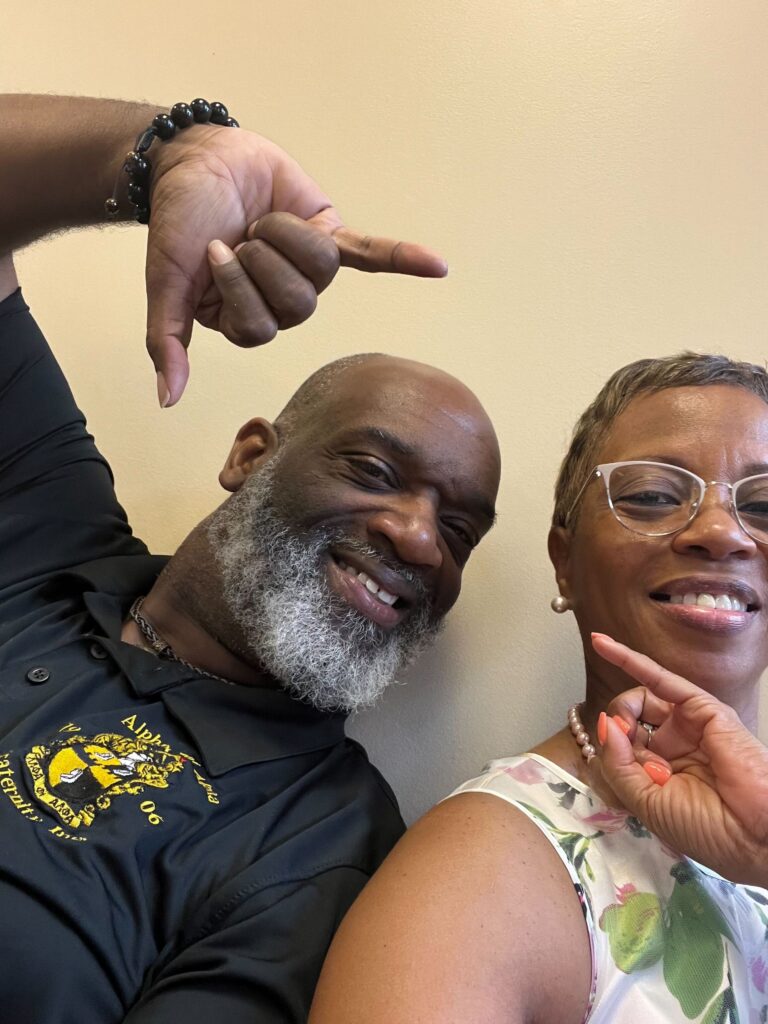
Family history of cancer
I myself have never had cancer. But my family has a long history of cancer.
My biological mother died from breast cancer when I was five years old. She had a sister who also died from breast cancer. She has nieces that have had breast cancer, but they survived. Right now, my brother and my aunt both have multiple myeloma.
We helped raise my sister’s daughters, Mia and Marisha, when their mom died of renal cell carcinoma. Unfortunately they have both passed away as well. Mia passed in 2019 and Marisha in 2020.
Marisha’s story
Marisha was diagnosed at 23 years old with stage 4 renal cell carcinoma. So there were things about my sister’s journey that I started seeing with Marisha.
I noticed the drastic weight loss. Within 2 months, she went from about a size 20 to a size 12 or 10. We were very concerned. We also realized that she had a knot in her neck, and then her skin had kind of changed.
So that’s when we had her go to the doctor and they immediately said it was some type of cancer. They just didn’t know what type at that point. And so from there the journey began.

Marisha was in a battle for her life. Initially, they gave her 6 months to live, and I pulled out all the stops. I was prepared to do anything to save her life.
So at that time, Marisha did not have health care coverage because she wasn’t working. So we did everything we could to get her what she needed, and we went to every pharmaceutical company. But the trial medication that she needed costs $13,000 a month.
Through prayer and connections and the doctors fighting on our behalf, Medicaid ended up paying for her medication. So it helped me realize that people really, really need to pay attention to their health care and overall health. You know, what kind of plans they have, what it pays for, what it doesn’t pay for.
Marisha also participated in a clinical trial, and it really helped her. Had it not been for the clinical trial, she would have been gone in 6 months. But she lived 7 years — 7 good years. And not in a bed like she was in a nursing facility.
Towards the end, Marisha started deteriorating. Maybe in the latter part of the summer, her blood pressure kept bottoming out, and then we found out that the medicine now was working against her health. So October the 3rd, which was her birthday, was the day they told me that they could not do anything else for her.
And that’s when the doctor said that the medicine was working against Marisha. And we couldn’t be mad about that because the medicine had worked so long and had done so well for her. And at that point, they had several other clinical trials lined up. But because her health had deteriorated, any other trial they did would just work against her because her physical health was just too low.
So when Marisha did pass away, it wasn’t because of the cancer. It was because her blood pressure couldn’t come up.
But we were thankful for the clinical trials. Because Marisha already had a child when she was diagnosed with cancer. Her baby was just 1 year old at the time. Through those clinical trials and other things, God allowed her to live 7 years, so that her son would know who his mama was.
Prayer works.
But, you know, we also have to remember that God works in all kinds of ways and not just one particular way.
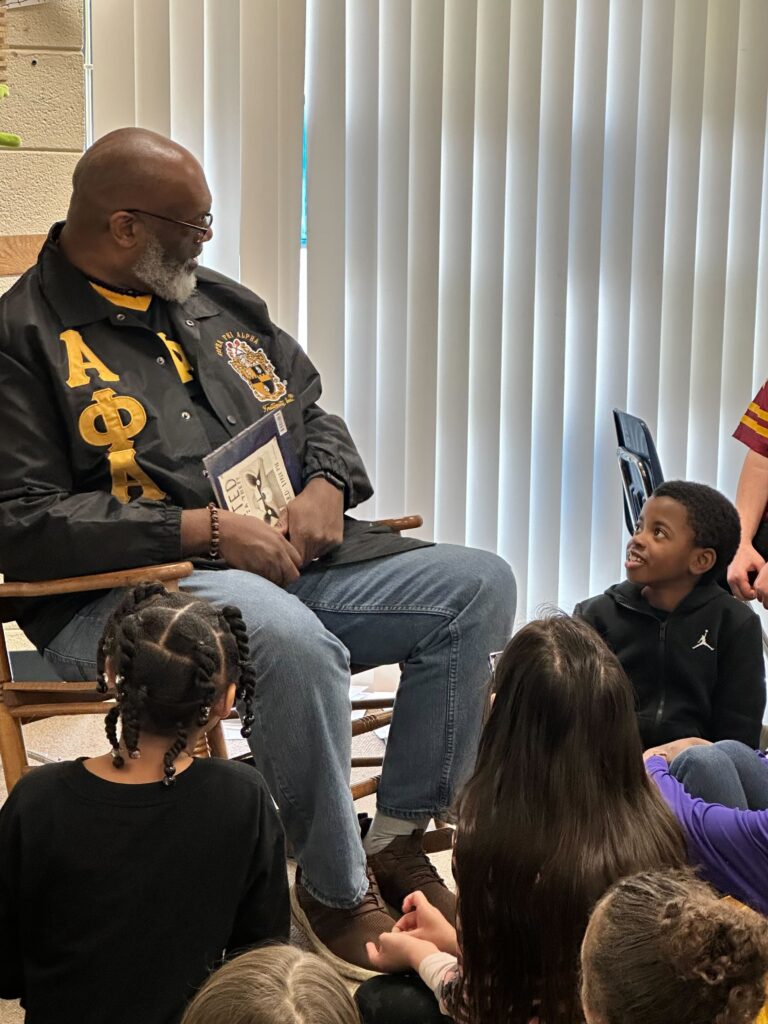
Leveraging his experience to help others through church
I have tried to make good use of what I’ve experienced and learned to help others, including through church. And I’ve learned a lot of things as well.
Learning about hospice care
At church we come across a lot of different things, because you get a collage of people coming from all walks of life.
One of my ministers was diagnosed with aggressive dementia. And her husband was limited educationally. So he relied heavily on me to help him get things in place for her.
I found that when we were dealing with their insurance, we had to pull in other methods to take care of her needs, because her needs were getting greater as the dementia progressed. And so we ended up having to go to the senior center and get help and direction as to what we needed to do next.
We realized in that process, a lot of people are like, when they hear hospice, their reaction is, oh my God, somebody’s dying. But hospice also helps if you have a disorder or a disease that’s terminal. It doesn’t mean you’re going to die tomorrow, but they will send somebody into the home. They can help with bathing and dressing, checking blood pressure, and different things like that.
If you don’t have Medicaid, you can’t get an in-home aide. But hospice now has an extension where you can get somebody to come in maybe a few hours a week and do different things. They can check blood pressure and blood sugar, and try to make sure that person is taken care of. So we had to put those things in place.
As a pastor, I find often that when my members come up short, they’re going to come to me because, well, I’m their pastor.
Using his experience as a testimony and to offer advice
I do offer advice rooted in my own and my family’s experience to date. And a lot of it happens because most of my church members know my experiences and what my family and I have dealt with.
I’ve gotten asked, pastor, what do you think I should do? And that happens all the time because they value the input of their pastor. And I give them what I’ve got.
You know, prayer works. But, you know, we also have to remember that God works in all kinds of ways and not just one particular way.
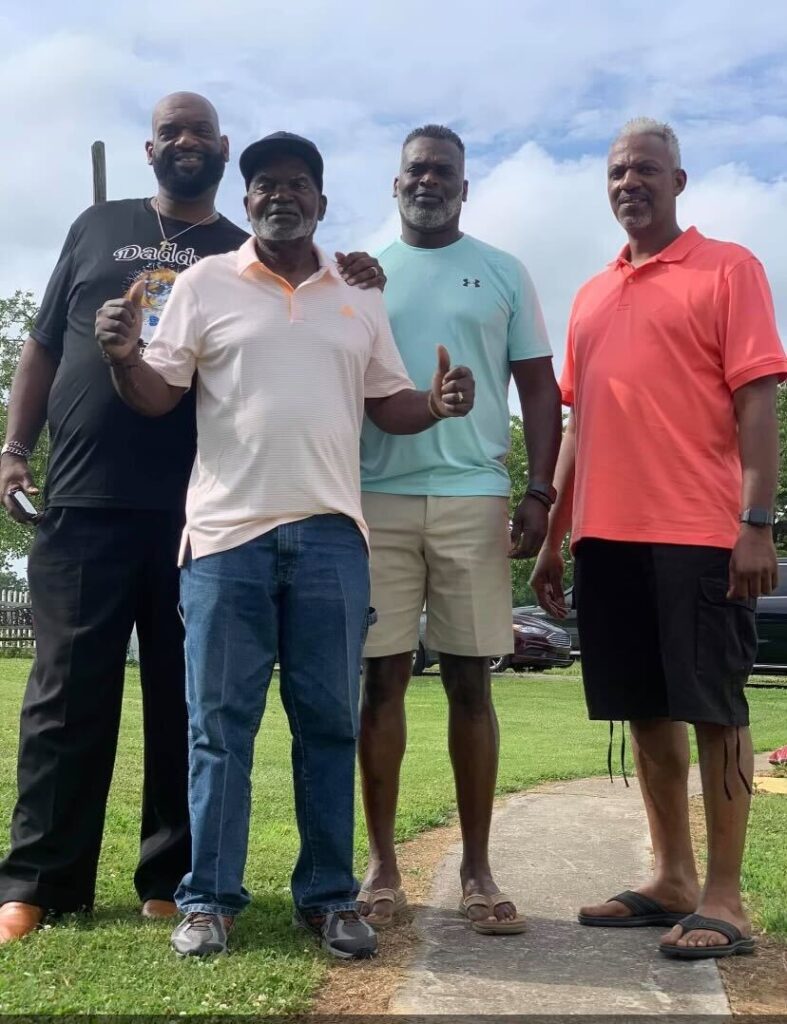
My experience has touched others and convinced them to go out and get themselves screened. And as a matter of fact, we pushed for that in our church. Like I said earlier, this is Breast Cancer Awareness Month. So we’re pushing that.
Starting the first Sunday of the month when people come to church, they’re going to get my soapbox on breast cancer awareness. As you know, breast cancer awareness is personal for me. So I share that story with my church members so that they will go and get checked, and we have a health care ministry that helps us promote that.
So whatever is going on, our health care ministry is there to provide whatever information that we need, like we did during the times when COVID was bad. We had readily accessible information to share not only with our church members but also with the community at large.
We don’t just exist for our church, we exist for whosoever needs us. It’s a let-them-come kind of situation.
The church… is an institution.
And we need to make sure we use that institution so people can grow.
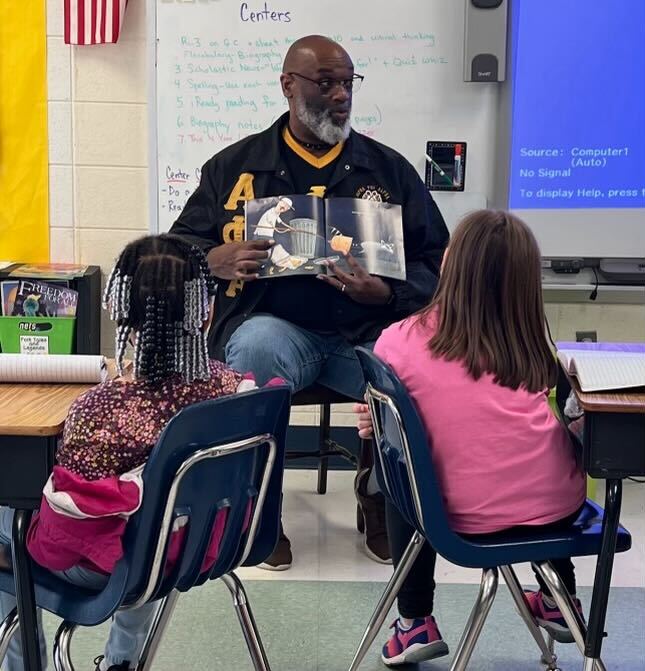
The impact on cancer screening from having a health care ministry in his church
I’ve found that maintaining a health care ministry is so crucial, because you will be surprised at who’s sitting in your congregation that doesn’t have a clue as to what’s out there that can help them.
Prevention is a major part of making sure our health is good. Because if you can catch something early, you know, sometimes people may say, oh — okay, that’s a sign. I need to go get this checked.
In our church when COVID and all that stuff was going on, we connected with other churches with by way of our healthcare ministry and encouraged them to have health care ministries too, through which they could collaborate and work towards helping their community.
Our health care ministry keeps track of health care for everyone and makes sure that everyone is aware of the cancer screening, aware of the tests that can be done, all of that stuff. So our health care ministry is definitely on top of that.
Helping the community get the best health care possible
It’s important for the church to understand that it’s not just there to preach the gospel. It also functions to give information.
We need to make sure that people are getting the information they need, because if you’re sick and you can’t come and work in ministry or help with ministry, we want to make sure that you have the information readily accessible to you.
The church, I said earlier, is an institution. And we need to make sure we use that institution so people can grow.
People can be the best version of them that they can be. And to support them, the church is like this all encompassing arena.
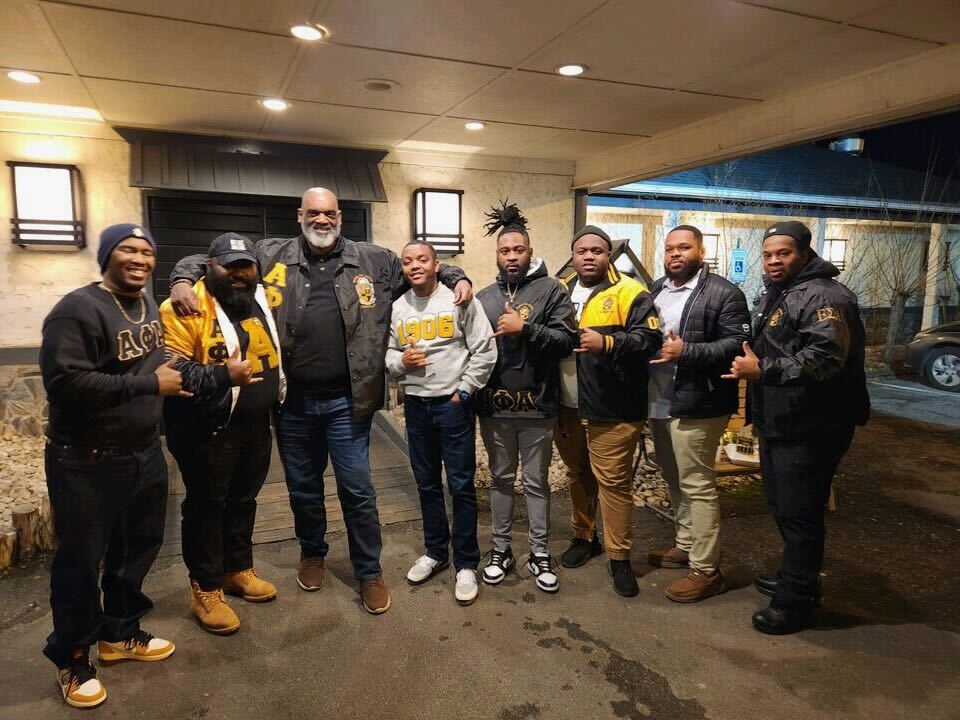
You know, it’s every aspect of a person’s life. So it’s not just about the old people and or just about the young people. It’s not just about the men or just about the women. It’s about the whole picture.
I believe church should be like a pie. It has a whole lot of slices, but at the end of the day, it’s a pie and we address every area of a person’s life. So health care and being getting screened and tested and all those kinds of things, that’s a slice of the pie .We are trying to make people as whole as possible.
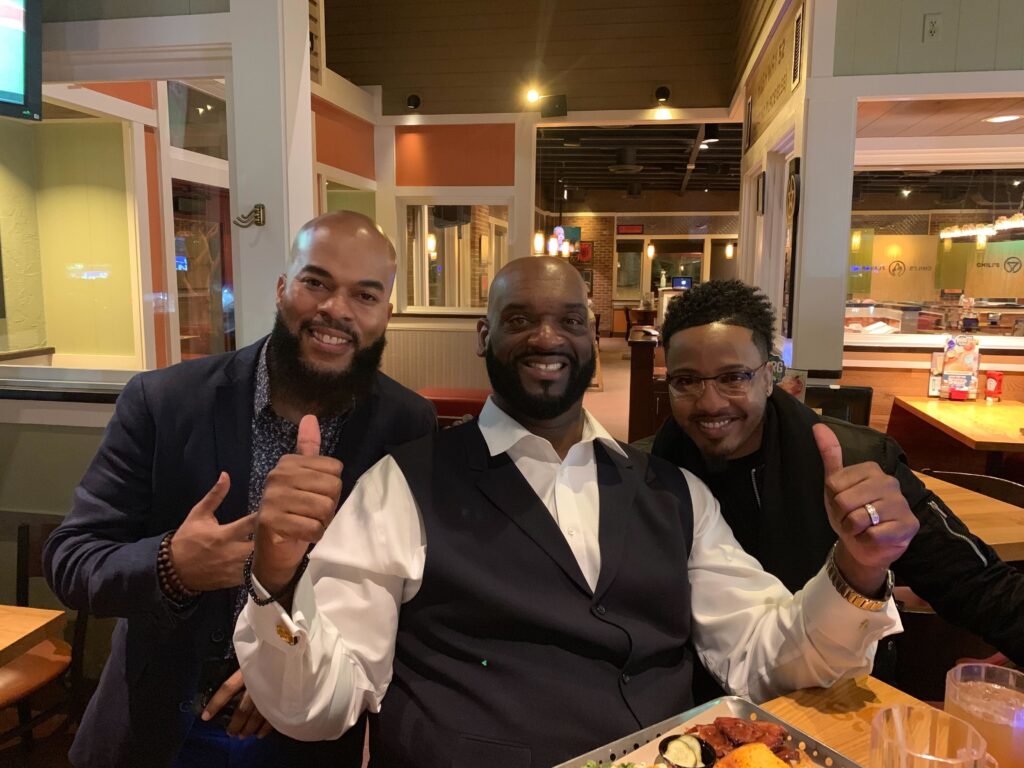
On God and suffering
How do I respond when people ask the question: why does God allow us to suffer?
Well, the Bible says that God rains on the just as well as the unjust. So nothing exempts any of us from anything. I think people want a perfect world, but we don’t live in a perfect world.
Jesus did say, in this life you will have tribulation. He says, but be of good cheer, for I have overcome the world.
We didn’t come here to stay, so something’s going to take us out of here.
I say to people, everybody dies from a heart attack. So everybody starts laughing. Like, what do you mean about that heart attack? I explain, as long as your heart is working, you’re living. But when your heart stops working, you die.
So everybody dies from a heart issue, is what I tell them. But I also want people to understand that you’re going to deal with some things in this life.
Okay, so people look at my family and say, well, how in the world did y’all make it through that? Because I realized that I belong to God, they belong to God.
It doesn’t take away from the pain. We were hurting. I thought I was going to lose my mind. I cried and I cried, and we still cry. But we have hope. And our hope is that God is going to get us through anything that we come in contact with.
So life is going to happen. Everybody wants to be rich. Everybody wants to be well. Everybody wants to be a whole lot of stuff. But that’s not the way of life. And even rich people don’t always have things their way. Look at those people who we all think have it all. But then look at what they’re missing.
So I believe that in this life, we just have to learn that we’re going to face some trials, but we don’t have to face them alone.
When people ask, why did God allow this to happen? I answer, well, God trusted you with it because he felt like you would be able to trust him enough to get you through it.
I saw this lady on Facebook who lost her son, mom and dad in a flood. She was interviewed on TV. She cried but said, I ain’t mad with God. I’m not saying I’m not hurt. I’m not saying that I’m not broken. I’m not mad because I know that God took them, and they are now with him.
You should understand that a lot of those kinds of comments that question why God allows us to suffer, they’re not really coming from people who really understand church and God. You know, they’re looking for somebody to blame instead of just accepting it as part of life. And we just have to be ready for whatever it is.
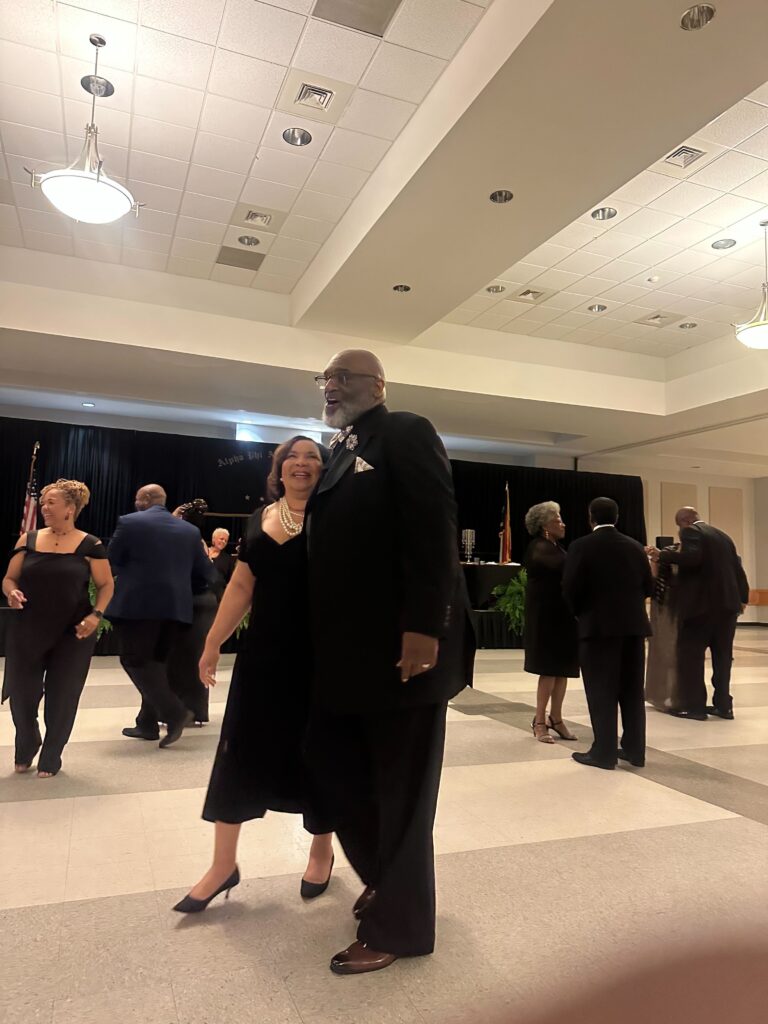
I didn’t want to go through losing what I’ve lost. It almost killed me. But I never charged God, I trusted him. Now that’s not just the pastor thing, but it’s the Christian thing, the God that’s in me. And that’s what I believe.
I got through my losses because I know that God is my refuge and my strength. He’s a very present help in the time of trouble. So when you start understanding the nature of God, that’s when you stop questioning, why is God doing this now?
And I did come to understand several things. That it has nothing to do with me directly and that this is His will for life. No one is going to live to be 150 years old. If that were the case, then nobody would ever leave this world.
I trust God, and this is what He revealed to me. He says, I am near to the brokenhearted. He said, you are brokenhearted. So guess where I am? And I let it go, because then I knew He was walking right there with me. And I’m telling you, I could not have made it this far had it not been for my trust in God. There is no way.

I testify about what God showed us and what he taught us when Marisha was sick. As I said earlier, we didn’t have the money for her treatments. We didn’t have $13,000 a month. But guess what? Things looked up one day. UPS was bringing her medication to the door. We didn’t even have to go pick it up ourselves.
And had Mia and Marisha died during COVID, we wouldn’t have been able to give them a proper burial and wouldn’t have gotten any closure. We did manage to do so. So we look at the blessing in it and not the curse. Not necessarily how bad something is, but how good God is in that situation.
We thank God because we were able to celebrate their lives and bury them like we wanted to. If we hadn’t managed to do that, it would have driven us crazy. But I was able to do bury them nicely and celebrate them, thanks to God who gave us the opportunity, and we really thank Him for it in the midst of what we were going through.
And I pray for people who don’t get to do the same for their loved ones who pass away.
If there’s something out there that can help you, I recommend that you go for it.
Advice Steven wants to share
Get the cancer screening and the health care you need
Marisha was very sick initially. She got better. And then at the end, of course, she passed away. But it taught us that we’ve really got to pay attention to health care and talk to people about the need for proper screenings and health care. They don’t ever know what kind of situation is going to present itself.
Now we all had health care. My family members that we worked and we all had health care, but because of her situation, she didn’t. And it wouldn’t pay for her medication initially, but we had to fight for it.
And since then, Medicaid has been expanded. So that is I’m sure that’s going to be a help to the community as well.
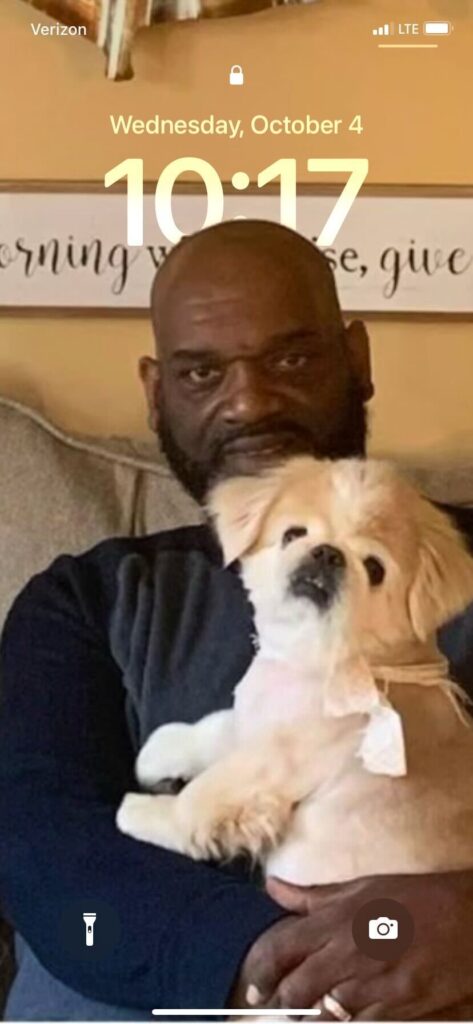
When we were growing up, my dad’s insurance covered us well. I know other people grew up without insurance, couldn’t go to the doctor when they needed to. Well, my dad’s insurance made sure we had a totally different experience. His insurance required us to go to certain dental appointments, that we had to have certain physicals once a year and all of that in order for his insurance to pay for other things that would come along.
So we didn’t have that challenge that a lot of people have.

Be an advocate for others
You would be surprised at the people who don’t know how to speak up for themselves.
I’m a talker and I don’t mind saying what I need to say, like I’m doing right now.
For instance, as I mentioned earlier, my brother and my aunt both have multiple myeloma, and I go with them to their doctor’s appointments and I talk to doctors.
So it is important, especially with the elderly community, that they have someone speaking for them. Take my dad, for instance. He’s 84 years old, and when he goes to his appointments, sometimes he’ll just say, tell them, children, because he doesn’t know how to interpret what the doctors are saying.
So then in turn, I’ll interpret to him what the doctors are saying, and then he’ll be like, oh, okay. And so collectively, we’ll make a decision on how they should proceed with whatever situation it is.
I’m telling you, it is so important to have someone fighting for you, because if you’re in a situation like with cancer or something like that, you may not feel up to talking to doctors and dealing with certain things.
And so you need people that can talk on your behalf, or who have resources to connect you to others who can.
In my church, I’m the pastor, of course, but sometimes I’m the advocate. I try to make sure that my people’s needs are met.
Be open to different treatment options
Lastly, if there’s something out there that can help you, I recommend that you go for it.
Let me talk a bit about clinical trials. I think a lot of times people are afraid of clinical trials because in the Black community especially, the first thing they say is they’re not going to be poking me and sticking things in me. And they do have that kind of idea that this is how clinical trials are.
I became the pastor of White Rock in July 2007. Three weeks into me being pastor, the chairman of my trustee board came to me and said, they’ve tested me for colon cancer, and they’re going to give me the results on such and such a date.
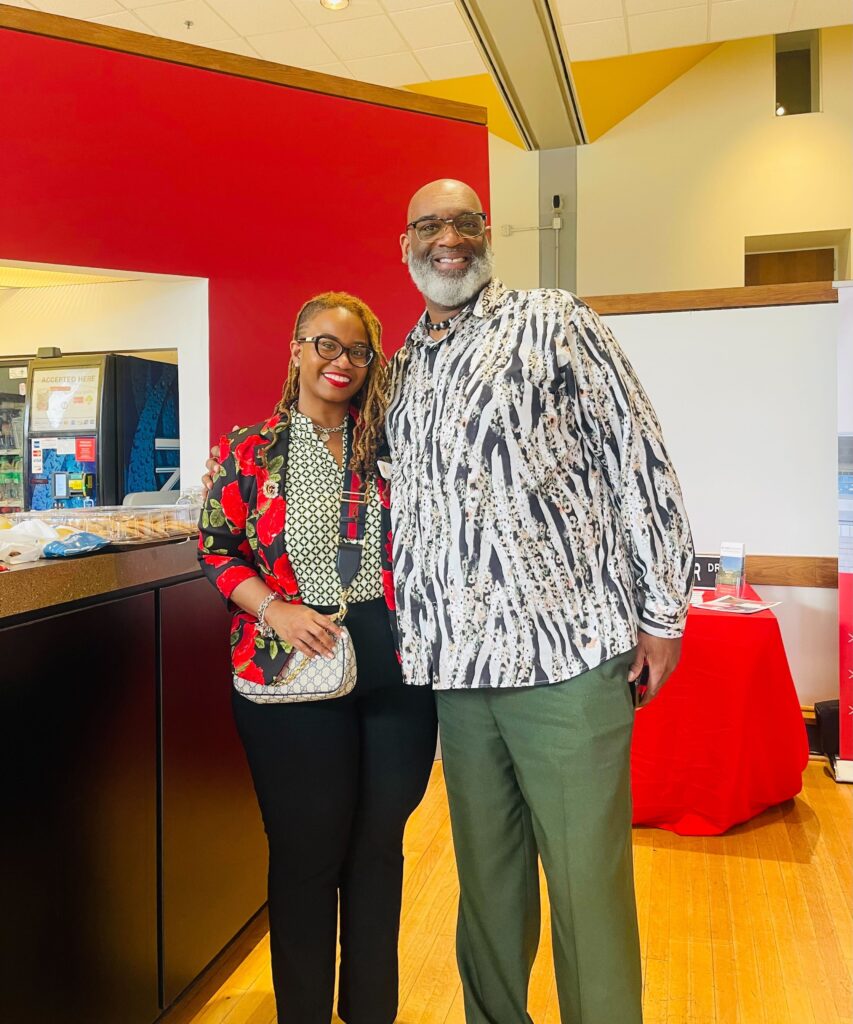
So I showed up for his appointment. He didn’t know I was going to be there. And we prayed and talked, and then he went back, he and his wife. And when he came back out, they had this funny look on their faces. And he said, well, pastor, I do have colon cancer and it has spread. Now we have to decide what it is that we want to do. So the doctors gave him options, but surgery was not one of them because of the metastasizing of the cancer.
So I was also with him when they asked him about different kinds of treatments and options that they had and they were offering. And, you know, sometimes when people hear the term “clinical trials”, they think that they’ll be experimented on and that the doct0rs don’t actually know if treatments are going to work.
He was a tough guy. So I had to really talk to get him to really do some things that he didn’t really want to do. And so needless to say, we walked the journey. He had a lot of good days, but he had a lot of bad days. And 3 years later he passed away. But it could have been a lot worse had he not done the trial.
And if you remember what I shared about my niece earlier, thanks to the clinical trial she underwent, she lived 7 good years—without being confined to a hospital bed or nursing facility or something. Were it not for the clinical trial, she would have been gone in 6 months. But she lived 7 good years and got to know her son too.
The culture component is vital to our understanding of why people won’t go see doctors or why people won’t join clinical trials or those kinds of things.
The Bible says that my people perish for a lack of knowledge. So sometimes people perish because they don’t have an understanding of things. And it’s trials and other things like these that help people to understand.



Special thanks again to Abbvie, Genmab, and Karyopharm for their support of our patient education program! The Patient Story retains full editorial control over all content.

Inspired by Pastor Hargrove's story?
Share your story, too!
Related Cancer Stories
More Renal Cell Carcinoma Stories
Mia H., Kidney Cancer (SMARCB1-Deficient Renal Cell Carcinoma, Non-Sickle Cell Trait), Stage 4
Symptoms: Bad cough, fatigue, nausea
Treatments: Chemotherapy, radiation, immunotherapy
...
Alexa D., Kidney Cancer, Stage 1B
Symptoms: Blood in the urine; lower abdominal pain, cramping, back pain on the right side
Treatment: Surgery (radical right nephrectomy)
...
Bill P., Papillary Renal Cell Carcinoma, Stage 3, Type 1
Symptoms: Kidney stone, lower back pain, sore/stiff leg, deep vein thrombosis (DVT) blood clot
Treatment: Nephrectomy (surgical removal of kidney and ureter)
...
Burt R., Pancreatic Neuroendocrine Tumor (pNET) & Kidney Cancer
Symptom: None; found the cancers during CAT scans for internal bleeding due to ulcers
Treatments: Chemotherapy (capecitabine + temozolomide), surgery (distal pancreatectomy, to be scheduled)
...
Sonia B., Kidney Cancer, Stage 1
Symptoms: Fatigue, abdominal discomfort, flank pain, constantly abnormal bloodwork
Treatment: Surgery (partial nephrectomy, ileostomy)
...
More Breast Cancer Stories
Deb O., Breast Cancer (De Novo Triple Positive and ER+ HER-)
Symptoms: First instance: appearance of lump that later on increased in size, orange peel-like skin around inverted nipple, persistent ache under right arm; second instance: appearance of lump
Treatments: First instance: chemotherapy, targeted therapy, hormone therapy; second instance: surgery (mastectomy), chemotherapy, radiation therapy, CDK 4/6 inhibitor
Tammy U., Metastatic Breast Cancer, Stage 4
Symptoms: Severe back pain, right hip pain, left leg pain
Treatments: Surgeries (mastectomy, hip arthroplasty), chemotherapy, radiation therapy, hormone therapy, targeted therapies (CDK4/6 inhibitor, antibody-drug conjugate)
Nicole B., Triple-Negative Metastatic Breast Cancer, Stage 4 (Metastatic)
Symptoms: Appearance of lumps in breast and liver, electric shock-like sensations in breast, fatigue
Treatments: Chemotherapy, surgeries (installation of chemotherapy port, mastectomy with flat aesthetic closure), targeted therapy (antibody-drug conjugate), hyperbaric oxygen therapy, lymphatic drainage
Dalitso N., IDC, Stage 4, HER+
Symptoms: Appearance of large tumor in left breast, severe back and body pain
Treatments: Surgery (hysterectomy), vertebroplasty, radiation therapy, hormone therapy, clinical trial
Marissa T., ILC, Stage 4, BRCA2+
Symptoms: Appearance of lump in right breast, significant fatigue, hot flashes at night, leg restlessness leading to sudden, unexpected leg muscle cramps
Treatments: Chemotherapy, hormone therapy, PARP inhibitor, integrative medicine
Janice C., Triple-Negative Metastatic Breast Cancer, Stage 4
Symptoms: Appearance of lump in left breast near sternum, fatigue, bone and joint pain
Treatments: Surgery (lumpectomy), radiation therapy (brachytherapy), chemotherapy
Dana S., IDC, Stage 4 (Metastatic)
Symptom: Appearance of large lump in left armpit
Treatments: Targeted therapy, hormone blockers, bone infusions
Maria S., Breast Cancer, Stage 4
Symptoms: Intermittent but severe pain including a burning sensation on the side of the breast, appearance of a cyst and a lump, abnormally warm and pink-colored breast, nipple inversion, strangely liquid menstrual periods, unusual underarm odor, darkening and dimpling of the nipple, severe fatigue, night sweats
Treatments: Chemotherapy, surgeries (mastectomy, lymphadenectomy), radiation therapy, targeted therapy
- 1
- 2
More Multiple Myeloma Stories
Tim H., Multiple Myeloma
Symptoms: None that could be identified; cancer found through CT scan for gallbladder removal
Treatments: Chemotherapy, stem cell transplant
Scott C., Refractory Multiple Myeloma, Stage 3
Symptoms: Pain in hips and ribs, night sweats, weight loss, nausea
Treatments: Clinical trial, chemo, kyphoplasty, stem cell transplant
Jude A., Multiple Myeloma, Stage 3
Symptoms: Pain in back, hips and ribs; difficulty walking
Treatments: Bilateral femoral osteotomy, reversal due to infection; chemotherapy
